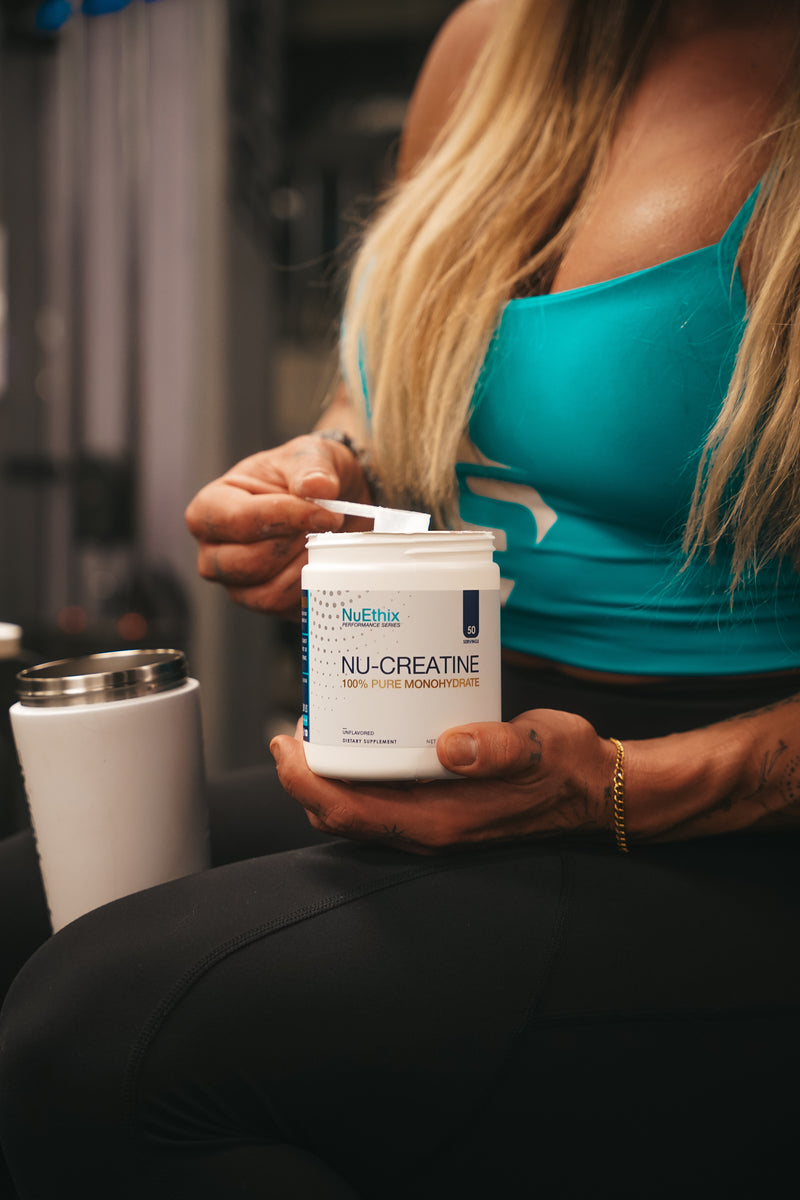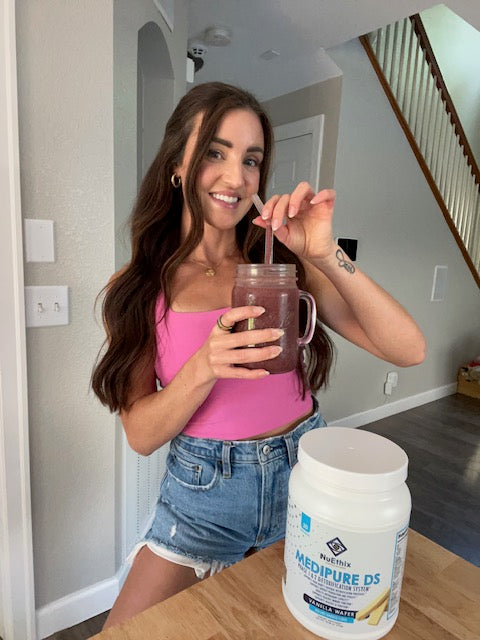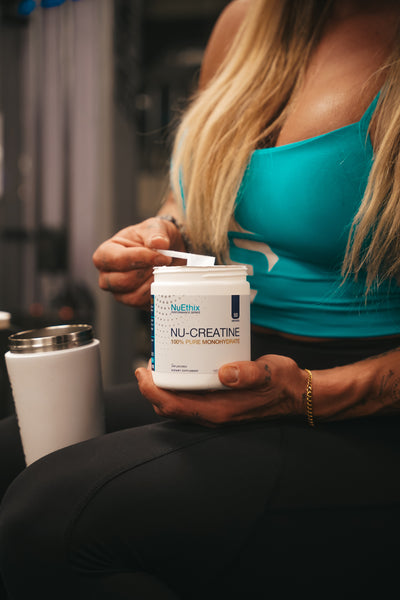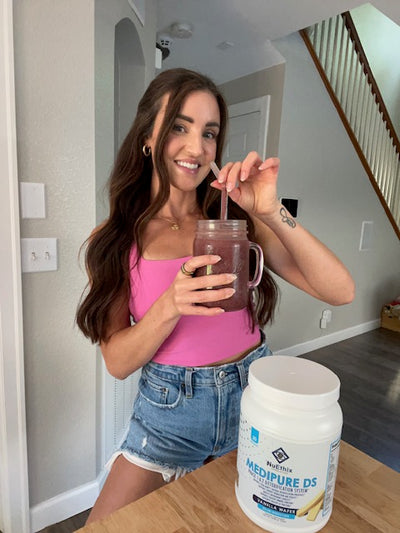
Why Vitamin C Is So Important
Why Vitamin C Is So Important
It’s your typical childhood Saturday morning. You’re all bunched up toward the tv watching your favorite early morning show, Recess while destroying your absurdly large trough-sized bowl of Fruity Pebbles. This is your peak – not a single care in the world and nothing to worry about at all.
Suddenly, you feel a slight tickle in your throat. That tickle then leads to a small coughing fit, and just out of the corner of your eye, you see your mom burst through the room like a SWAT team, at the ready with a carton of orange juice and a boatload of Flintstones vitamins.
You already know what’s about to go down… You’re now getting the full-on “so help me god, please don’t let this child get sick” treatment.
But why are multivitamins and orange juice almost always the go-to methods of sickness preparation? Growing up, you’ve probably wondered the same thing and maybe still take the same approach each time you feel a cold coming on.
The reason why it’s always been heavily relied on is because of the vitamin C content and the underlying benefits that come along with preventing sickness or helping your body’s immune system fight back and stay healthy. Vitamin C has been heavily researched for ages regarding its benefits that go above and beyond just helping increase immunity and overall health.

Vitamin C is so freaking important that it’s become a common household necessity; whether it’s in multivitamin form, food, drinks, and so on. Your favorite fruit? Yes, it has vitamin C. The great thing is that it’s found in so many different forms, making it easily accessible to hit your daily intake.
But what makes vitamin C so great and why is it so important?
In this article, we break down the importance of vitamin C plus all the health benefits, how much you need daily, and where you can most commonly find it.
The Need for Vitamin C and Benefits
Your body relies on nutrients for many reasons, but vitamin C plays a large role in keeping your immune system high. Without a healthy immune system, you become susceptible to sicknesses and diseases that can become extremely detrimental to your overall health and well-being.
Just like how your body can become nutrient deficient, a lack of vitamin C can increase your risk of many different health-related issues. Your body relies on vitamin C to help with many different functions that include the following:
- Antioxidant properties for the protection of cells against the negative risks of free radicals [1] that your body goes up against daily.
- May help reduce the risk of cardiovascular diseases. [2]
- Studies show that vitamin C can help support wound healing through the role of keratinocyte differentiation. [3, 4]
- Promotes healthy skin with collagen formation and disposal of toxic oxidants. [5]
Many studies have also shown that vitamin C has been linked to disease prevention where a clinical trial performed in Japan during the period of 1973-1977 shows that the average survival rate for terminal cancer patients was 15% higher in those who had supplemented with vitamin C. [6]


Along with disease prevention, vitamin C also has great benefits that range from an increase in overall fertility [7], all the way down to protect against the common cold [8] – hence why it’s been widely praised as being a necessity whenever you feel yourself coming down with something.
As you can see (no pun intended), vitamin C has a wide range of benefits and plays a large role in your daily health when you’re meeting the proper daily value.
How Much Vitamin C Do You Need?
Your daily recommended amount solely comes down to your age and gender in order to properly calculate your body’s nutrient dependency. For example, children who are between the ages of 1-13 typically only need around 15 mg – 45 mg which is on the lower end of the spectrum depending on their age group at that time.
According to the National Institutes of Health, the average adult male needs roughly 90 mg of vitamin C daily, while the average adult female needs about 75 mg. Pregnant teens and women are recommended to have an increase in total vitamin C intake at around 80-85 mg while breastfeeding teens and adult females are recommended to get even more at about 115-120 mg per day. [7,8,9,10]
| Life Stage | Recommended Amount |
|---|---|
| Birth to 6 months | 40 mg |
| Infants 7–12 months | 50 mg |
| Children 1–3 years | 15 mg |
| Children 4–8 years | 25 mg |
| Children 9–13 years | 45 mg |
| Teens 14–18 years (boys) | 75 mg |
| Teens 14–18 years (girls) | 65 mg |
| Adults (men) | 90 mg |
| Adults (women) | 75 mg |
| Pregnant teens | 80 mg |
| Pregnant women | 85 mg |
| Breastfeeding teens | 115 mg |
| Breastfeeding women | 120 mg |
If you’re an avid smoker, your body will need about 35 mg or more per day than what the average recommended amount shows due to an increase in oxidative stress. [11]
Keep in mind that it’s relatively easy to achieve this daily recommended value, especially with everyday foods you have around the house. The average small orange contains up to 51 mg of vitamin C alone according to the U.S. Department of Agriculture. [12]
An orange a day, keeps the doctor away – am I right?
What Happens If You Don’t Get Enough Vitamin C?
People who are deficient in vitamin C can experience the following: [13,14,15,16,17,18]
- Extreme fatigue and exhaustion
- Inflammation and other skin-related issues
- Joint pain and weakened bone health
- Anemia due to poor iron absorption
- Possibility of developing scurvy
- Poor wound healing
If you’re not getting the proper amount of vitamin C daily, you’re depriving your body of this essential vitamin which is not a very good thing as you can see. It’s very important that you continue to monitor your nutrient intake and/or get tested to see if you may be deficient in certain vitamins and minerals.
By simply making sure you’re meeting your daily recommended amount, you are helping improve your health and get all the benefits that vitamin C has to offer. If you’re struggling to meet your daily need for food and drinks alone, try opting for a basic multivitamin that has the proper amount – this will allow you to meet your daily need in a convenient and easy method.
It is important to note that it’s very uncommon to ever be deficient in vitamin C simply because you don’t need a lot of it, and it’s commonly found in many different foods and drinks without you even knowing it – this makes it much easier to consume the right amounts.
Where Can You Find Vitamin C?
As previously stated, vitamin C is found in very common foods and drinks. From citrus fruit like oranges to vegetables such as bell peppers, broccoli, and cauliflower – I mean, the list goes on and on. It’s extremely easy to find sources that contain a high amount of vitamin C without having to search online looking for different methods to obtain it.

There are also many different multivitamins or oral liquid forms of vitamin C, including NuEthix Formulations’ brand-new product, Liposomal C. In fact, the liposomal form is water soluble and has been proven to absorb up to 70% better than other forms of oral vitamin C.
Packing up to 1000 mg of vitamin C in a single serving, Liposomal C is an incredibly sufficient and convenient way of helping boost your body’s immune system and combat potential illnesses while still meeting your daily vitamin C needs. Available in a great-tasting liquid form, there’s no better solution if you’re looking to maintain optimal health levels.
The Benefits of High Doses
While being widely praised for its positive effects on health, vitamin C is also highly studied for its results at higher doses. Surpassing the daily recommended amount has played a role in being an aid to cancer patients who are undergoing chemotherapy as vitamin C can help prevent additional illnesses while repairing cells that have been damaged during treatment.

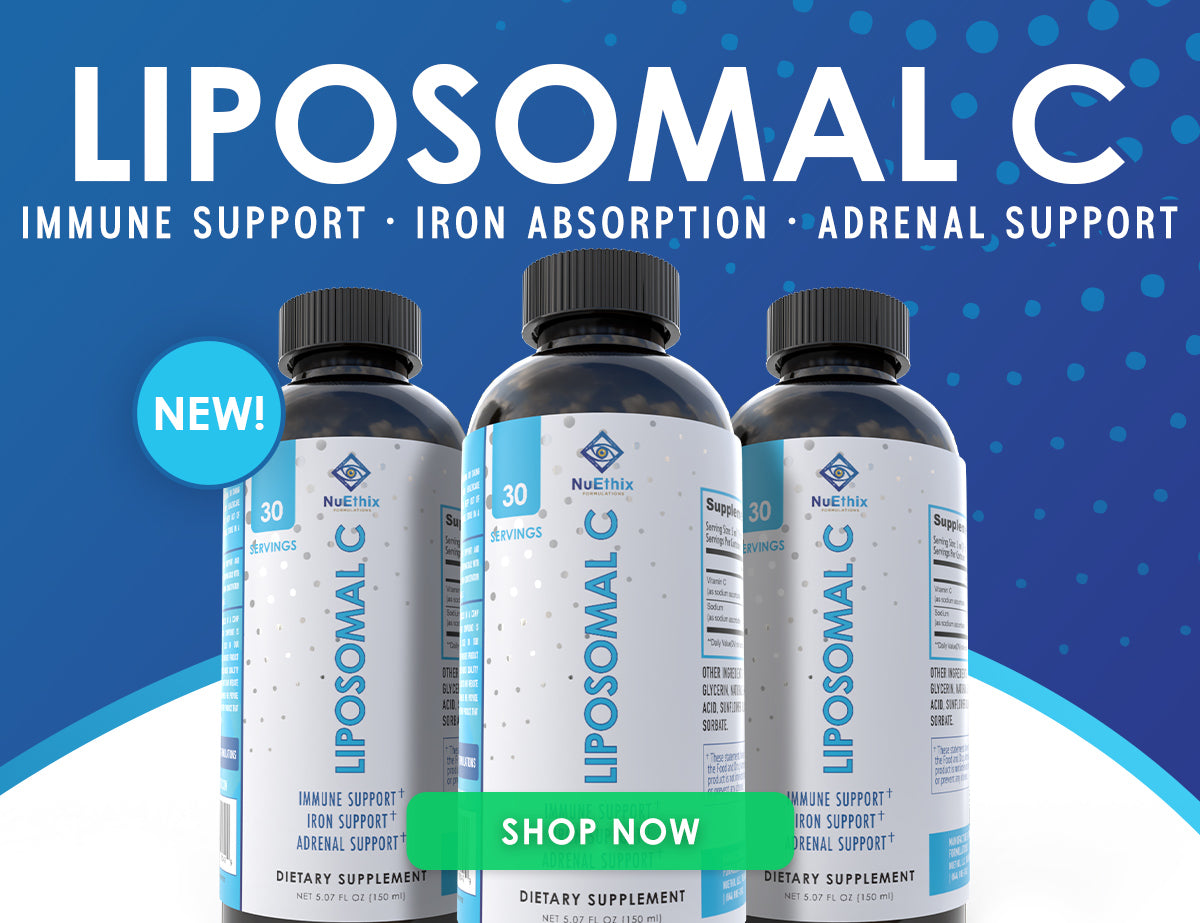
Macro-dosing vitamin C is also vital to those who suffer from anemia as it helps aid in increased iron absorption. Many anemic individuals who suffer from iron deficiency will take higher doses of vitamin C along with an iron supplement in order to sufficiently help with this issue.
When taken intravenously, higher doses of vitamin C can increase the bioavailability inside the body in order to repair and heal while being completely absorbed by cells making macro dosing a strong point for those in need of daily care.
Can You Take Too Much Vitamin C?
The short answer here is no. While the recommended maximum daily intake is 2,000 mg per day [19], there’s technically no amount that would cause any damage to you. In fact, taking large doses of Vitamin C has been proven beneficial for many individuals who suffer from a weakened immune system. While your body is unlikely to absorb anything at irregular amounts, it certainly will not do much aside from maybe causing a slight belly ache at the most.
In some circumstances, cancer patients have been given higher doses of vitamin C due to their weakened immune systems [20], this has proved to be beneficial and improved the quality of life of those who were treated with larger amounts of vitamin C.
It’s certainly unlikely to overdose on vitamin C also as it’s extremely rare and you would have to take in an absurd amount that just isn’t possible in all circumstances. So no, you’re perfectly safe even taking higher amounts of vitamin C – the worst that could happen is some small GI discomfort.
Summary
From your childhood memories of being sick and having to chug orange juice all the way to your pre-cold prevention rituals as an adult -- Vitamin C is a staple in helping your immune system so you can stay healthy and feel better.
There are many great sources of vitamin C available and it’s very easy to hit your daily recommended amount, whether that be from food/drinks to supplements. There are plenty of optimal ways to achieve all the benefits that vitamin C has to offer.
With so many clinical health studies and proven benefits, there is a strong importance of vitamin C and why it’s become a household name for medical and daily life reasons. If you feel like you’re not getting enough vitamin C, talk to your physician or healthcare professional about what can be offered for you.
References
- Mayo Clinic Staff – Vitamin C https://www.mayoclinic.org/drugs-supplements-vitamin-c/art-20363932
- World Health Organization Cardiovascular diseases (CVDs) Jun 2021 https://www.who.int/en/news-room/fact-sheets/detail/cardiovascular-diseases-(cvds)
- Oregon State University Linus Pauling Institute, Alexander J. Michels, Ph.D Sep 2011 – Vitamin C and Skin Health https://lpi.oregonstate.edu/mic/health-disease/skin-health/vitamin-C
- Oregon State University Linus Pauling Institute, Alexander J. Michels, Ph.D Sep 2011 – Vitamin C and Skin Health https://lpi.oregonstate.edu/mic/health-disease/skin-health/vitamin-C
- Pullar JM, Carr AC, Vissers MCM. The Roles of Vitamin C in Skin Health. Nutrients. 2017 Aug 12;9(8):866. doi: 10.3390/nu9080866. PMID: 28805671; PMCID: PMC5579659. https://www.ncbi.nlm.nih.gov/pmc/articles/PMC5579659/
- Murata A, Morishige F, Yamaguchi H. Prolongation of survival times of terminal cancer patients by administration of large doses of ascorbate. Int J Vitam Nutr Res Suppl. 1982;23:103-13. PMID: 6811475. https://pubmed.ncbi.nlm.nih.gov/6811475/
- National Institutes of Health – Office of Dietary Supplements, Vitamin C Fact Sheet for Consumers https://ods.od.nih.gov/factsheets/VitaminC-Consumer/
- National Institutes of Health – Office of Dietary Supplements, Vitamin C Fact Sheet for Consumers https://ods.od.nih.gov/factsheets/VitaminC-Consumer/
- National Institutes of Health – Office of Dietary Supplements, Vitamin C Fact Sheet for Consumers https://ods.od.nih.gov/factsheets/VitaminC-Consumer/
- National Institutes of Health – Office of Dietary Supplements, Vitamin C Fact Sheet for Consumers https://ods.od.nih.gov/factsheets/VitaminC-Consumer/
- Institute of Medicine. 2000. Dietary Reference Intakes for Vitamin C, Vitamin E, Selenium, and Carotenoids. Washington, DC: The National Academies Press. https://doi.org/10.17226/9810.
- U.S. Department of Agriculture. ORANGES, RAW, ALL COMMERCIAL VARIETIES (SR LEGACY, 169097) 2019 https://fdc.nal.usda.gov/fdc-app.html#/food-details/169097/nutrients
- National Institutes of Health – Office of Dietary Supplements, Vitamin C Fact Sheet for Consumers https://ods.od.nih.gov/factsheets/VitaminC-Consumer/
- National Institutes of Health – Office of Dietary Supplements, Vitamin C Fact Sheet for Consumers https://ods.od.nih.gov/factsheets/VitaminC-Consumer/
- National Institutes of Health – Office of Dietary Supplements, Vitamin C Fact Sheet for Consumers https://ods.od.nih.gov/factsheets/VitaminC-Consumer/
- National Institutes of Health – Office of Dietary Supplements, Vitamin C Fact Sheet for Consumers https://ods.od.nih.gov/factsheets/VitaminC-Consumer/
- National Institutes of Health – Office of Dietary Supplements, Vitamin C Fact Sheet for Consumers https://ods.od.nih.gov/factsheets/VitaminC-Consumer/
- National Institutes of Health – Office of Dietary Supplements, Vitamin C Fact Sheet for Consumers https://ods.od.nih.gov/factsheets/VitaminC-Consumer/
- National Institutes of Health – Office of Dietary Supplements, Vitamin C Fact Sheet for Consumers https://ods.od.nih.gov/factsheets/VitaminC-Consumer/
- Murata A, Morishige F, Yamaguchi H. Prolongation of survival times of terminal cancer patients by administration of large doses of ascorbate. Int J Vitam Nutr Res Suppl. 1982;23:103-13. PMID: 6811475. https://pubmed.ncbi.nlm.nih.gov/6811475/

Austin Perry
Veteran fitness and health writer Austin Perry has accrued almost a decade worth of experience in sports nutrition and supplementation while having numerous featured articles published and shared within the wellness community.
